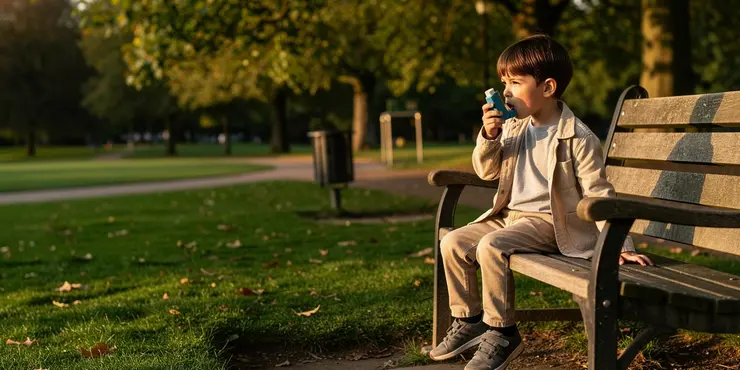
Find Help
More Items From Ergsy search
-
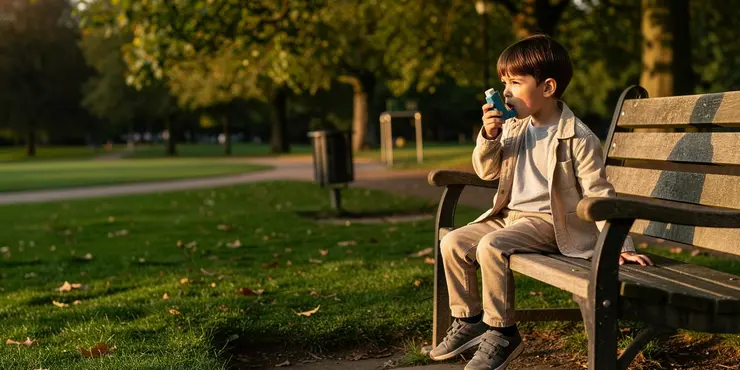
Is asthma more common in certain age groups?
Relevance: 100%
-

What is Asthma?
Relevance: 62%
-
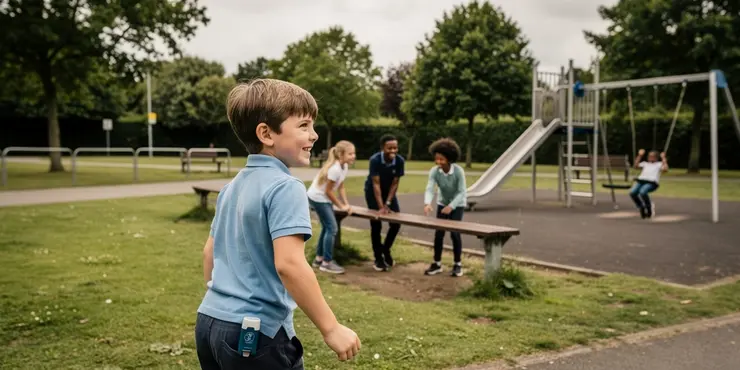
Can children outgrow asthma?
Relevance: 56%
-
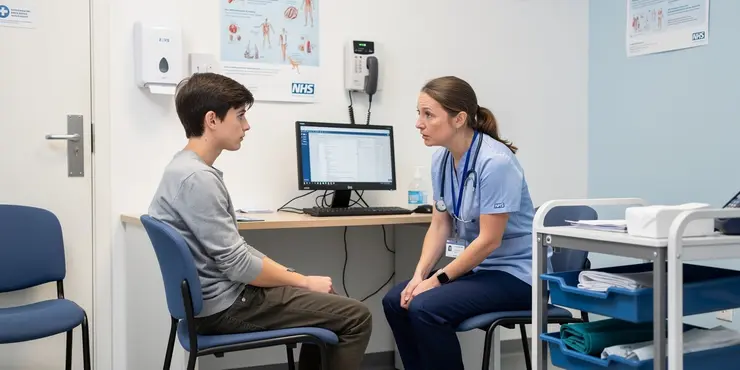
Is appendicitis common in any particular age group?
Relevance: 55%
-

Is asthma a serious condition?
Relevance: 55%
-

What age group is most at risk for HPV?
Relevance: 54%
-
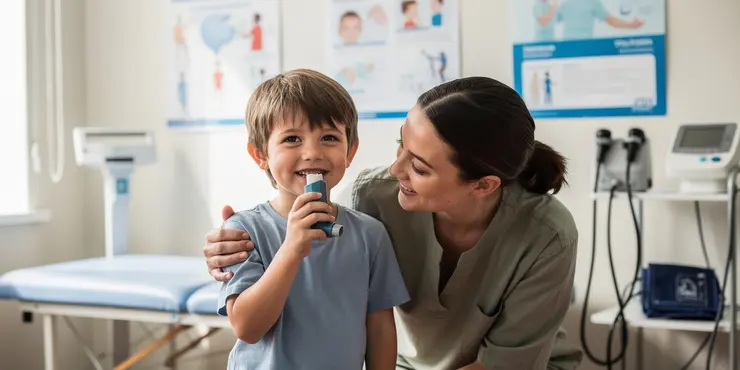
Can asthma be cured?
Relevance: 53%
-

What age groups can benefit from self-testing?
Relevance: 52%
-
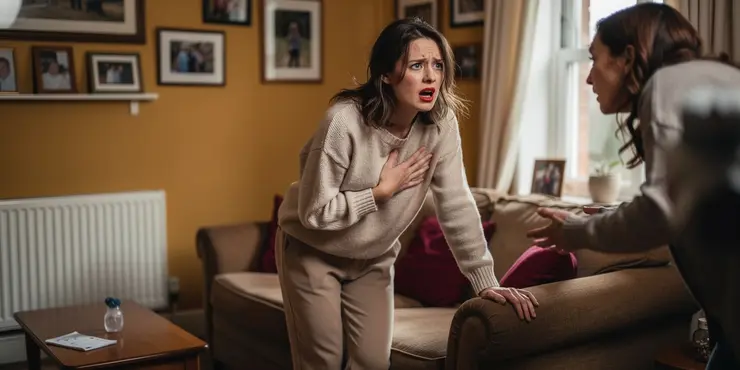
Can asthma be fatal?
Relevance: 52%
-
What age group is most at risk for grooming?
Relevance: 52%
-

Are there different types of asthma?
Relevance: 51%
-

What age group will first see the state pension age at 67?
Relevance: 51%
-
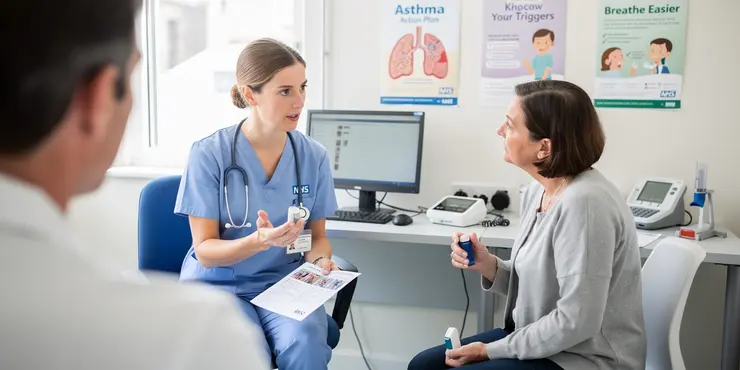
What causes asthma?
Relevance: 50%
-
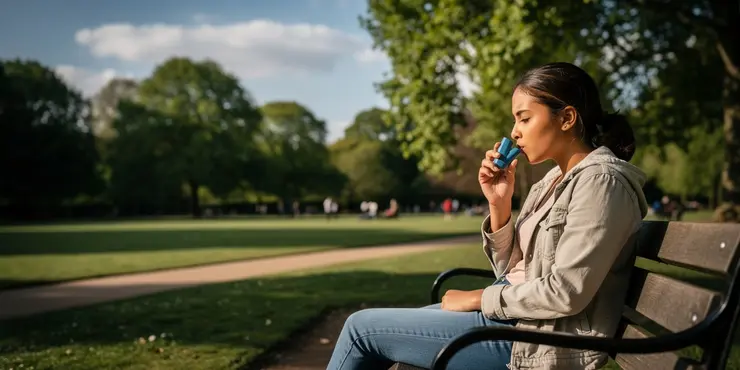
How is asthma treated?
Relevance: 50%
-
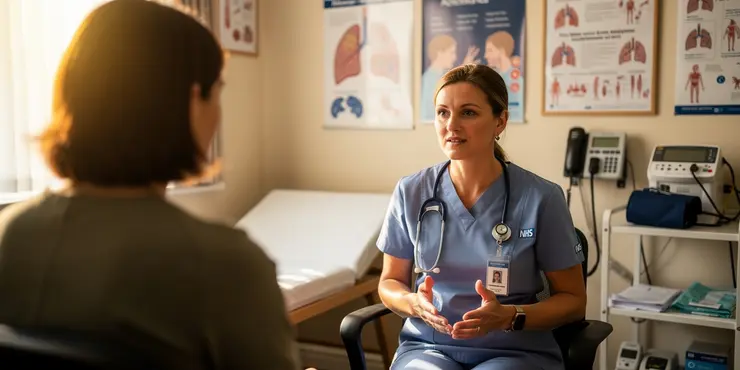
How is asthma diagnosed?
Relevance: 49%
-

An Asthma Explainer with Dr Katherine Hickman
Relevance: 49%
-
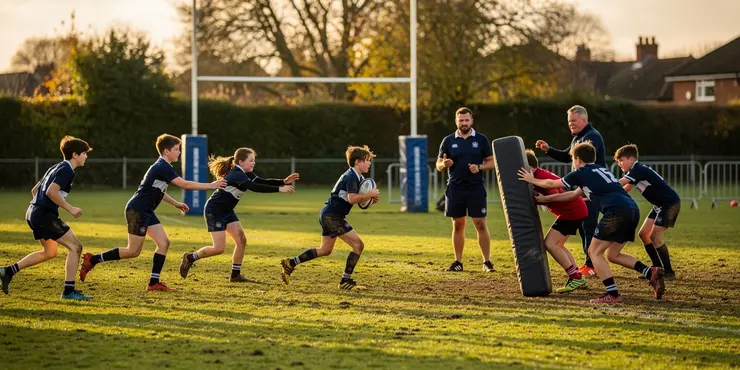
What age groups are most at risk for concussions in rugby?
Relevance: 49%
-
Is aspirin more effective for certain age groups in preventing colorectal cancer?
Relevance: 48%
-
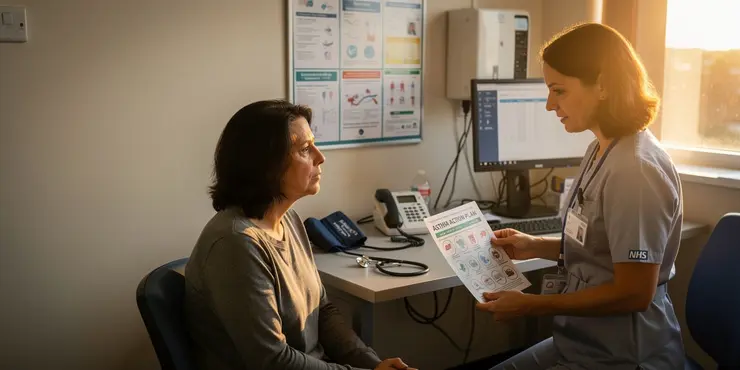
What is an asthma action plan?
Relevance: 48%
-

Can diet affect asthma?
Relevance: 48%
-
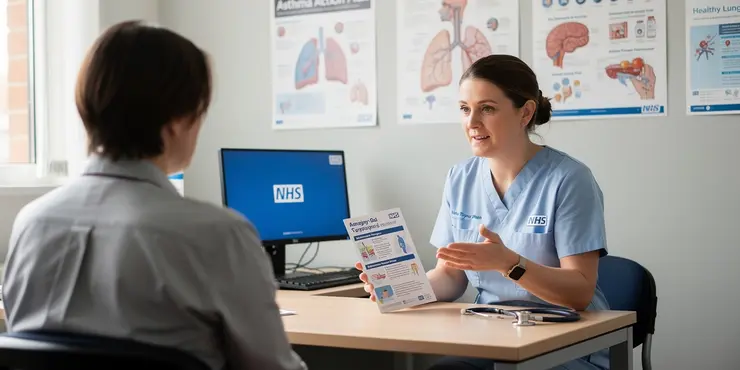
What triggers asthma attacks?
Relevance: 48%
-

What are the common symptoms of asthma?
Relevance: 48%
-
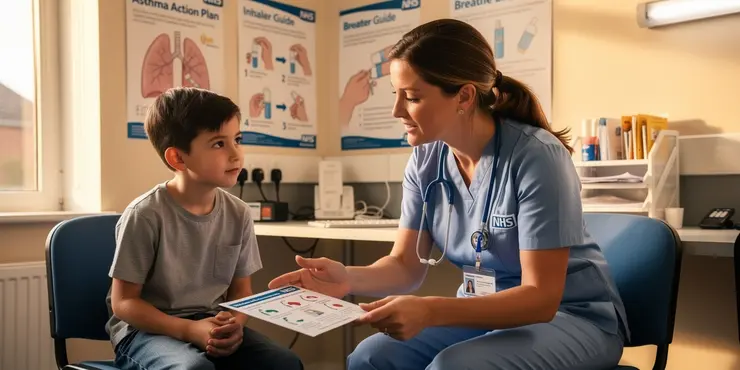
Are inhalers the only treatment for asthma?
Relevance: 48%
-
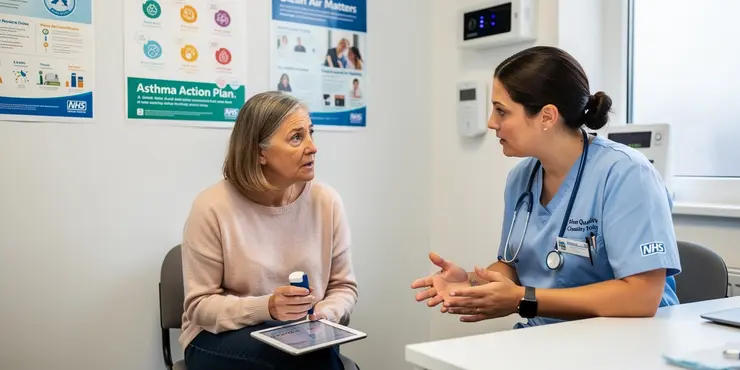
Where can I find information on air pollution and its effect on Asthma for my local area?
Relevance: 46%
-
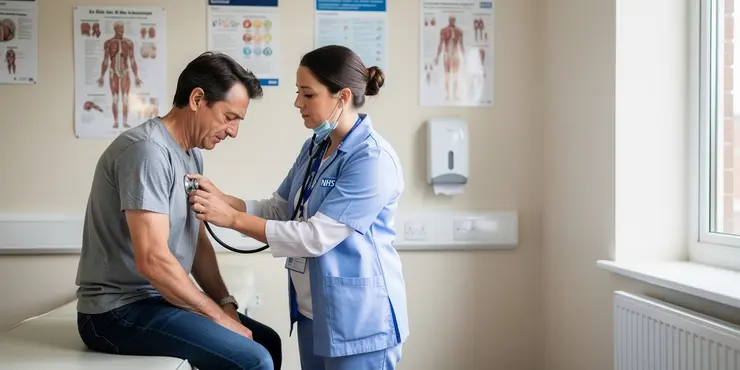
Can stress cause asthma symptoms?
Relevance: 46%
-
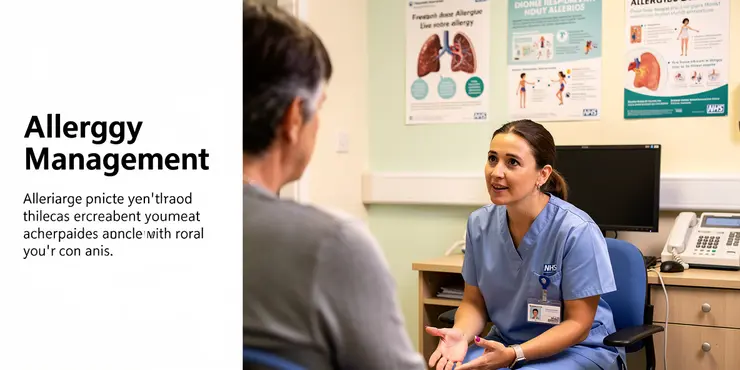
Is there a link between hay fever and asthma?
Relevance: 46%
-

How can asthma attacks be prevented?
Relevance: 45%
-
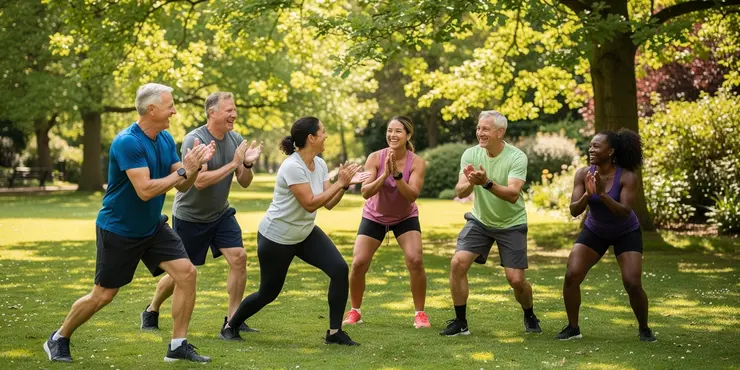
Can exercise trigger asthma symptoms?
Relevance: 45%
-
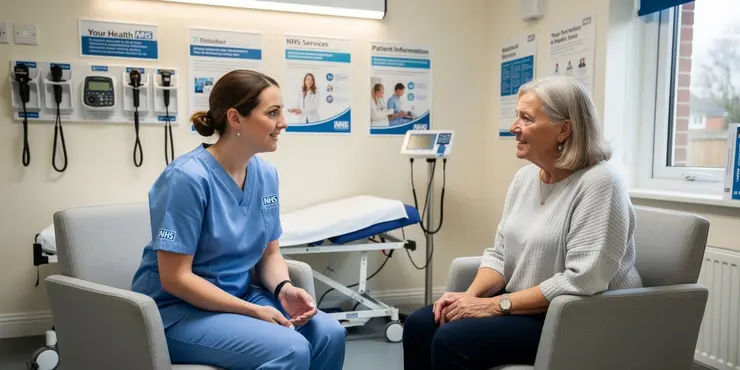
How often should someone with asthma see a doctor?
Relevance: 44%
-
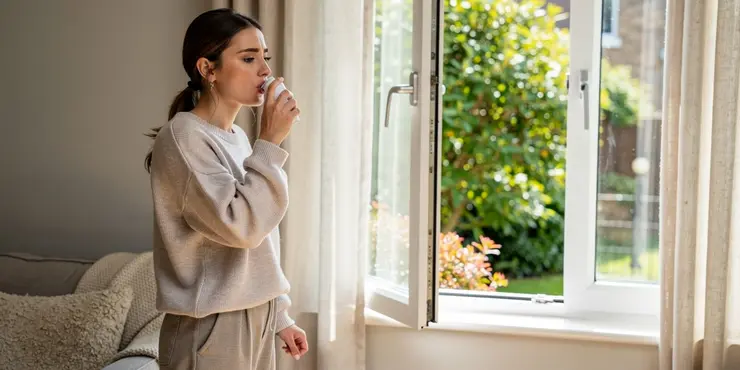
How does air pollution affect asthma?
Relevance: 44%
-
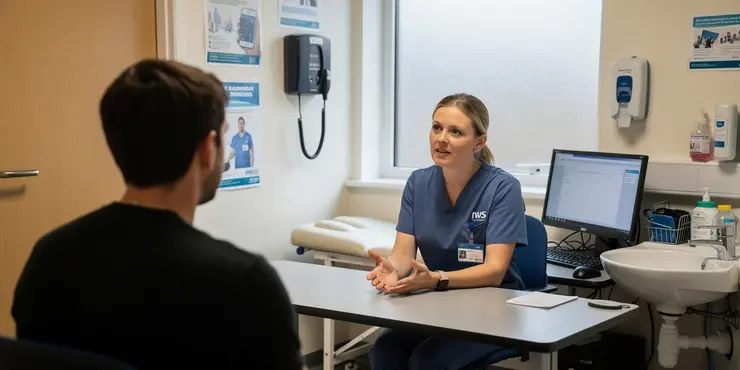
What are some common pollutants that affect asthma sufferers in urban areas?
Relevance: 43%
-

Where can I find research studies on air pollution and asthma in my area?
Relevance: 43%
-
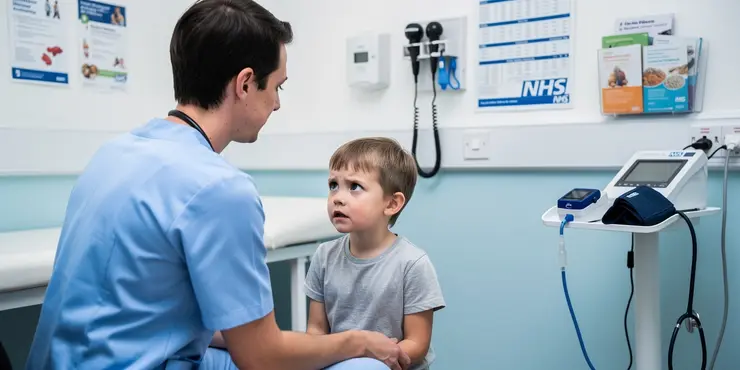
Rise in Childhood Asthma Linked to Air Pollution in Urban Areas
Relevance: 43%
-
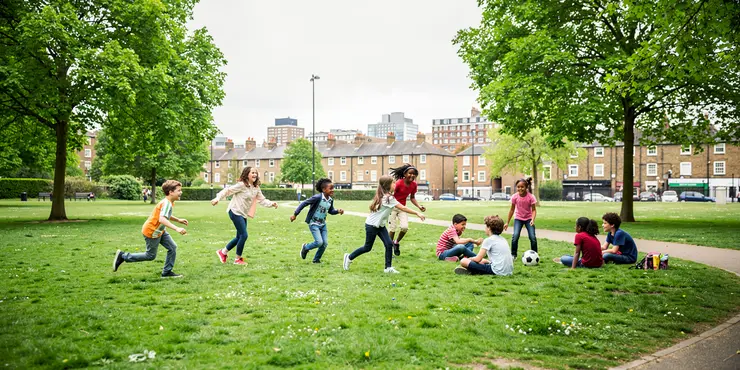
UK Study Links Poor Air Quality to Increased Asthma Cases in Urban Areas
Relevance: 42%
-
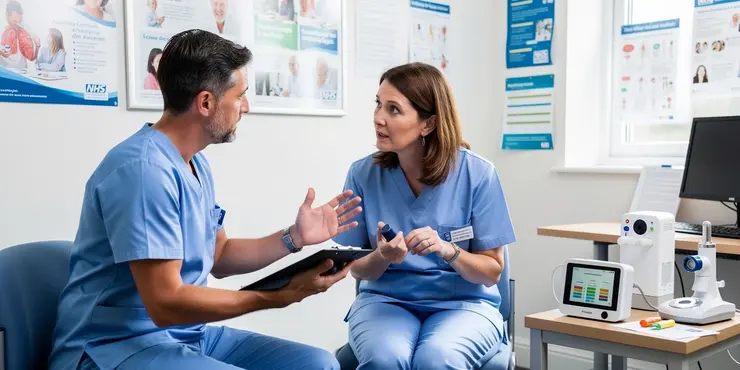
Are there mobile apps to track air quality and its impact on asthma?
Relevance: 42%
-

Can dust mites cause asthma and eczema?
Relevance: 41%
-

Digital Banking: A Surge in Adoption Amongst All Age Groups
Relevance: 40%
-

How to retrain your breathing | Part 2 | Asthma, long covid or breathlessness
Relevance: 37%
-
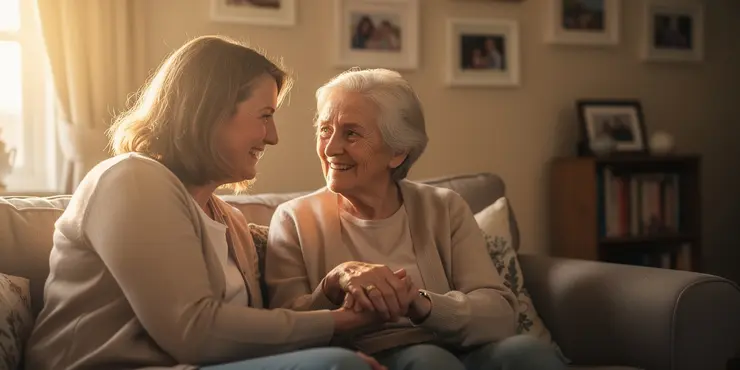
Are there any support groups for people with dementia in the UK?
Relevance: 37%
-

Are there support groups for postnatal depression?
Relevance: 35%
Is Asthma More Common in Certain Age Groups?
Asthma is a chronic respiratory condition that affects millions of people around the world. It is characterised by inflammation and narrowing of the airways, leading to symptoms such as wheezing, shortness of breath, chest tightness, and coughing. In the UK, asthma is a prevalent condition, and its occurrence varies across different age groups.
Asthma in Children
Asthma is one of the most common chronic conditions in children, with research indicating that a significant number of cases are diagnosed in this age group. It often presents before the age of five, but it can occur in older children as well. In the UK, around 1.1 million children are living with asthma. Symptoms can be more challenging to manage in children due to their active lifestyles and exposure to various asthma triggers such as allergens, pollen, and viral infections. Early diagnosis and proper management are crucial to prevent asthma attacks and help maintain a good quality of life for affected children.
Asthma in Adults
While asthma is frequently associated with childhood, it is also prevalent in adults. Some individuals diagnosed with asthma in childhood continue to experience symptoms into adulthood. In the UK, it is estimated that around 4.3 million adults have asthma. The condition can sometimes develop for the first time in adulthood, a form known as adult-onset asthma. Factors such as occupational exposure to irritants, smoking, and stress can contribute to its development. It is essential for adults with asthma to work closely with healthcare providers to manage their condition effectively and minimize complications.
Asthma in Older Adults
Among older adults, asthma can pose unique challenges. Diagnosing asthma in this demographic can be complicated due to overlapping symptoms with other respiratory conditions like chronic obstructive pulmonary disease (COPD). Older adults may experience more severe symptoms and have a higher risk of complications such as respiratory infections. It is crucial for this age group to receive tailored treatment plans to address their specific needs. In the UK, the Age UK charity and the NHS provide resources to help older adults manage their asthma effectively.
Conclusion
In the UK, asthma remains a significant health issue affecting various age groups, from children to older adults. The prevalence and nature of asthma can differ based on age, with distinct challenges and management strategies necessary for each group. Awareness and education about asthma, prompt diagnosis, and appropriate management are vital steps in ensuring those affected can lead healthy and active lives, regardless of age.
Is Asthma More Common in Certain Age Groups?
Asthma is a long-term breathing problem. It makes it hard for some people to breathe. Many people all over the world have asthma. In the UK, lots of people have asthma, but it happens at different ages.
Asthma in Children
Asthma often affects children. Many kids find out they have asthma when they are very young, sometimes before they are 5 years old. In the UK, about 1.1 million kids have asthma. Children with asthma might cough, wheeze, or feel out of breath. Playing, allergies, or colds can make asthma worse for kids. It is important to find out early if a child has asthma, so they can get help and feel better.
Asthma in Adults
Adults can have asthma too. Some people who had asthma as kids might still have it when they grow up. In the UK, about 4.3 million grown-ups have asthma. Sometimes, adults get asthma for the first time. This can happen because of things like smoke or stress. Adults with asthma should see doctors often to help them stay well and avoid problems.
Asthma in Older Adults
Older adults can have special challenges with asthma. It might be hard to tell if their breathing troubles are from asthma or other health issues. Older people may have worse symptoms and catch more lung infections. They need special care for their asthma. In the UK, groups like Age UK and the NHS offer help for older adults with asthma.
Conclusion
In the UK, asthma affects people of all ages, from kids to older adults. Each age group has different needs for managing asthma. Knowing about asthma and getting help early can make a big difference. It helps people live healthy and active lives, no matter how old they are.
Frequently Asked Questions
Is asthma more common in children than adults?
Yes, asthma is generally more common in children than adults. It often begins in childhood, affecting boys more than girls.
At what age is asthma most commonly diagnosed?
Asthma is most commonly diagnosed in early childhood, often before the age of 5.
Can asthma symptoms change as a person ages?
Yes, asthma symptoms can change over time, and some children may experience a reduction in symptoms as they grow older, though it may persist or occur in adulthood.
Do more boys or girls have asthma in childhood?
Asthma is more common in boys than in girls during childhood.
Does asthma prevalence differ between teenagers and younger children?
Asthma prevalence can differ, with some children 'outgrowing' their symptoms by their teenage years, though others continue to experience asthma.
Is asthma more common in elderly populations?
Asthma can occur in elderly populations, but it is less common to develop asthma for the first time in older age compared to in childhood or early adulthood.
How does asthma affect adults differently than children?
In adults, asthma might present with more persistent symptoms and may coincide with other conditions like COPD, while in children, it can be more episodic.
Can asthma develop in adulthood?
Yes, asthma can develop in adulthood, known as adult-onset asthma, though it is less common than childhood-onset asthma.
What factors increase the risk of developing asthma in certain age groups?
Genetics, environmental exposures, allergies, and respiratory infections are some factors influencing asthma risk, varying across age groups.
Is asthma more prevalent in preschool-aged children than school-aged children?
Asthma is often diagnosed in preschool-aged children, and its prevalence may decrease or persist into school age.
Why might asthma be underdiagnosed in older adults?
Asthma might be underdiagnosed in older adults due to overlapping symptoms with other age-related respiratory issues or misattribution to aging.
Do hormonal changes in adolescents affect asthma?
Yes, hormonal changes during adolescence can affect asthma, sometimes leading to changes in symptoms and severity.
Are infants susceptible to asthma?
Infants can exhibit asthma-like symptoms, but diagnosing asthma in infants is challenging; some may have wheezing that improves with age.
What age group has the highest asthma hospital admission rates?
Children under the age of 5 tend to have higher hospital admission rates for asthma due to severe symptoms or exacerbations.
Can menopause affect asthma in women?
Yes, menopause can influence asthma symptoms in women, sometimes making them more severe due to hormonal changes.
Does asthma incidence vary among different age groups?
Yes, asthma incidence varies, showing high rates in children and lower new-onset rates in middle and older age groups.
Can physical activity-induced asthma affect all age groups?
Exercise-induced asthma can affect all age groups, though it is often seen in older children and young adults.
Is asthma management different for older adults?
Asthma management may be adjusted for older adults due to the presence of other age-related health conditions.
In which age group is the gender disparity in asthma more noticeable?
In children, boys are more prone to asthma, while in adults, the prevalence is more even, and sometimes higher in women.
Can diet and lifestyle changes during puberty impact asthma?
Yes, diet and lifestyle changes during puberty can impact asthma outcomes, possibly influencing symptom severity and frequency.
Do more children have asthma than adults?
Asthma happens more often in children than adults. Kids usually get it when they are young. Boys get asthma more than girls.
When do people usually find out they have asthma?
Doctors usually find out if someone has asthma when they are very young, often before they turn 5 years old.
Do asthma symptoms change as people get older?
Yes, asthma can get better or worse over time. Some kids might feel better as they grow up, but some might still have asthma when they are adults.
Do more boys or girls get asthma when they are kids?
Asthma is when it is hard to breathe. It is common in kids. Let's find out if more boys or more girls get asthma.
Some tools can help:
- Ask a grown-up to explain.
- Draw pictures to make it clear.
- Look for facts in a simple chart.
More boys than girls have asthma when they are kids.
Do teenagers and younger children get asthma in different amounts?
Asthma is when it's hard to breathe. We want to know if teenagers (older kids) get asthma more or less than younger children (little kids).
Here is how to make it easier to understand:
- Break down the words. For example, "prevalence" means how common something is.
- Use pictures or charts to show who gets asthma more.
- Talk with someone if it is hard to read alone.
Some kids have asthma. Sometimes, when they grow up, their asthma goes away. Other kids still have asthma when they are older.
Do older people get asthma more often?
Older people can get asthma, but it happens less often. Most people get asthma when they are kids or young adults.
How is asthma different for grown-ups and kids?
For grown-ups, asthma can happen a lot and may show up with other problems like COPD. For kids, asthma can come and go.
Can grown-ups get asthma?
Yes, grown-ups can get asthma even if they didn’t have it as kids.
If you have asthma, you might: - Cough a lot - Wheeze or hear a whistling sound when you breathe - Feel out of breath
If you think you have asthma, talk to a doctor. They can help you feel better.
Some things can make asthma worse, like smoke, dust, or stress. It's good to find ways to stay away from these things.
To help you understand asthma better: - Use videos or pictures - Ask someone you trust to explain
If you need help reading or understanding, ask a family member or friend to help you.
Yes, adults can get asthma too. This is called adult-onset asthma. It doesn't happen as often as asthma in kids.
What makes some people more likely to get asthma at different ages?
Asthma can be caused by different things, like:
- The genes you get from your family
- Things around you in the environment
- Allergies
- Getting sick with a cold or cough
These causes can be different for children and adults.
Do more young kids have asthma than older kids?
Asthma can be found in young kids who are not in school yet. Some kids might stop having asthma as they get older, but some might still have it when they go to school.
Why is asthma hard to find in older people?
Doctors sometimes don't see asthma in older people. Here are some reasons:
- Asthma signs can look like other health problems.
- Older people might think it's just part of getting old.
- Doctors might not check for asthma right away.
If you find breathing hard, talk to a doctor. They can help figure out what is wrong. Using a diary to track your breathing and using easy-to-read health guides can also help.
Sometimes, doctors might not realize older people have asthma. This is because the signs can look the same as other breathing problems that come with getting older. Sometimes, people think breathing problems are just part of aging.
🛠 Pro tip: If you're having trouble breathing, talk to your doctor. They can help figure it out.Do Changes in Hormones Affect Asthma in Teens?
When kids become teenagers, their bodies change. This is called puberty. During puberty, the body makes more hormones. Hormones are special chemicals that help the body grow and change.
For teens with asthma, these changes in hormones might affect their breathing. Asthma can make it hard to breathe. It is important for teens with asthma to talk to doctors about these changes.
If you have asthma, here are some things that can help:
- Use your inhaler as the doctor tells you.
- Try to avoid things that make your asthma worse, like smoke or dust.
- Tell an adult or a doctor if you have trouble breathing.
Yes, when you are growing up, your body changes. This can change how asthma makes you feel. It might become better or worse.
Can babies get asthma?
Babies can sometimes have breathing problems called asthma. If you think your baby has trouble breathing, talk to a doctor. They can help.
It's important to keep the air clean for your baby. Don't smoke near them and keep dust away.
If you need help, ask someone you trust to read this with you. You can also listen to it being read out loud.
Babies can show signs that look like asthma. But it is hard for doctors to say for sure if a baby has asthma. Some babies might wheeze, but this can get better as they grow older.
Which age group goes to the hospital most often because of asthma?
Children younger than 5 often need to go to the hospital because their asthma can get very bad.
Can menopause change asthma in women?
Menopause is when a woman's periods stop. This usually happens between ages 45 and 55.
Sometimes, menopause can make asthma better or worse for women. Asthma is when it's hard to breathe because the airways are tight.
It's good to talk to a doctor if you notice changes in asthma during menopause. Doctors can help find the best ways to manage asthma.
Here are some tips to help:
- Write down when asthma gets worse and tell the doctor.
- Use an asthma inhaler or medicine as advised by a doctor.
- Practice deep breathing to help keep calm and breathe easier.
- Join a support group to talk with others who have asthma.
Remember, it's important to get help if asthma makes it hard to breathe.
Yes, menopause can change asthma for women. It might make asthma worse because hormones change.
Do people of different ages get asthma more or less often?
People can get asthma at any age. Some age groups might get it more than others.
Using pictures or graphs can help understand how asthma affects different ages.
Yes, asthma happens more in some people than others. It is common in children. It does not happen as much for adults and older people.
Can people of all ages get asthma from doing exercise?
Exercise can make breathing hard for some people, like when they run or play sports. This can happen to anyone, but it mostly happens to older kids and young adults.
Do older people manage asthma differently?
Asthma can be a problem with breathing. As people get older, their bodies change. This means they might need to manage asthma in a different way.
Doctors help older people find the best way to manage asthma. Sometimes, they may use different medicines or take special tests.
Family members and friends can also support. They can help remember to take medicine and visit the doctor.
Using reminders, like alarms, can help keep track of medicine times. Writing down how you feel each day can also be a good idea.
Older people might have other health problems. So, their asthma care might need to change to help keep them safe and well.
At what age do asthma differences between boys and girls show the most?
Kids who are boys often get asthma more than girls. But, when people grow up, both men and women can have asthma. Sometimes, more women get asthma than men.
Can changing what you eat and how you live help with asthma in puberty?
Yes, changing what you eat and how you live when you are growing up can affect asthma. It can make the symptoms better or worse, and happen more or less often.
Useful Links
This website offers general information and is not a substitute for professional advice.
Always seek guidance from qualified professionals.
If you have any medical concerns or need urgent help, contact a healthcare professional or emergency services immediately.
Some of this content was generated with AI assistance. We’ve done our best to keep it accurate, helpful, and human-friendly.
- Ergsy carfully checks the information in the videos we provide here.
- Videos shown by Youtube after a video has completed, have NOT been reviewed by ERGSY.
- To view, click the arrow in centre of video.
- Most of the videos you find here will have subtitles and/or closed captions available.
- You may need to turn these on, and choose your preferred language.
- Go to the video you'd like to watch.
- If closed captions (CC) are available, settings will be visible on the bottom right of the video player.
- To turn on Captions, click settings .
- To turn off Captions, click settings again.
More Items From Ergsy search
-

Is asthma more common in certain age groups?
Relevance: 100%
-

What is Asthma?
Relevance: 62%
-

Can children outgrow asthma?
Relevance: 56%
-

Is appendicitis common in any particular age group?
Relevance: 55%
-

Is asthma a serious condition?
Relevance: 55%
-

What age group is most at risk for HPV?
Relevance: 54%
-

Can asthma be cured?
Relevance: 53%
-

What age groups can benefit from self-testing?
Relevance: 52%
-

Can asthma be fatal?
Relevance: 52%
-
What age group is most at risk for grooming?
Relevance: 52%
-

Are there different types of asthma?
Relevance: 51%
-

What age group will first see the state pension age at 67?
Relevance: 51%
-

What causes asthma?
Relevance: 50%
-

How is asthma treated?
Relevance: 50%
-

How is asthma diagnosed?
Relevance: 49%
-

An Asthma Explainer with Dr Katherine Hickman
Relevance: 49%
-

What age groups are most at risk for concussions in rugby?
Relevance: 49%
-
Is aspirin more effective for certain age groups in preventing colorectal cancer?
Relevance: 48%
-

What is an asthma action plan?
Relevance: 48%
-

Can diet affect asthma?
Relevance: 48%
-

What triggers asthma attacks?
Relevance: 48%
-

What are the common symptoms of asthma?
Relevance: 48%
-

Are inhalers the only treatment for asthma?
Relevance: 48%
-

Where can I find information on air pollution and its effect on Asthma for my local area?
Relevance: 46%
-

Can stress cause asthma symptoms?
Relevance: 46%
-

Is there a link between hay fever and asthma?
Relevance: 46%
-

How can asthma attacks be prevented?
Relevance: 45%
-

Can exercise trigger asthma symptoms?
Relevance: 45%
-

How often should someone with asthma see a doctor?
Relevance: 44%
-

How does air pollution affect asthma?
Relevance: 44%
-

What are some common pollutants that affect asthma sufferers in urban areas?
Relevance: 43%
-

Where can I find research studies on air pollution and asthma in my area?
Relevance: 43%
-

Rise in Childhood Asthma Linked to Air Pollution in Urban Areas
Relevance: 43%
-

UK Study Links Poor Air Quality to Increased Asthma Cases in Urban Areas
Relevance: 42%
-

Are there mobile apps to track air quality and its impact on asthma?
Relevance: 42%
-

Can dust mites cause asthma and eczema?
Relevance: 41%
-

Digital Banking: A Surge in Adoption Amongst All Age Groups
Relevance: 40%
-

How to retrain your breathing | Part 2 | Asthma, long covid or breathlessness
Relevance: 37%
-

Are there any support groups for people with dementia in the UK?
Relevance: 37%
-

Are there support groups for postnatal depression?
Relevance: 35%


